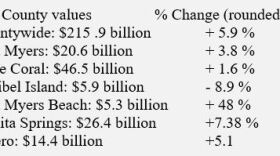Gospel singer Joe Ligon died Sunday at the age of 80. He was the electric and vibrant frontman for the Grammy award-winning group Mighty Clouds of Joy, which helped bring gospel to the mainstream.
Ligon was born in Troy, Ala. in 1936. He spent some time in Detroit, then moved to L.A., where he joined the Mighty Clouds of Joy and proved himself in the band. In an interview with the Malaco Music Group, Ligon revealed that he wasn't originally chosen as the group's lead singer. One night, as the group was rehearsing, the lead vocalist was having trouble with part of a song.
"I showed him how to do the part," Ligon says. "And the old man who's really responsible for our career ... was listening. And he told me that night, 'From now on, you're gonna be the lead singer.'"
Gospel star Pastor Shirley Caesar says Ligon brought a remarkable energy to his performances. "He was the type of singer that would never sit down until he had torn the house up," she says. "Just leave the house in a spiritual frenzy.
Caesar adds that no gospel singers — herself included — ever wanted to follow Ligon and his Mighty Clouds of Joy. "By the time Joe and the Clouds would've finished singing, there was really nothing left — the people were really ready to go home," she says.
Alabama-based music journalist J. Matthew Cobb also noted Ligon's singular performance style. "He always gave a fiery, Sunday-morning preacher-like delivery," he says.
The Mighty Clouds of Joy's biggest hit, "Mighty High," came out in the '70s, and Cobb says the single was emblematic of a transition gospel was going through at that time. It incorporated sounds from soul and pop music and appealed to younger and more secular audiences. Not everyone was comfortable with the change.
"It allowed them to perform on Soul Train," Cobb says. "They were being played in discos. And they got a lot of flack for doing that." Flack aside, the song ended up charting on the Billboard Top 100.
Despite the criticism he got for his crossover success, Ligon certainly maintained a base of committed fans. Ceasar says that when Ligon walked into a room of gospel fans, he inspired a special sense of adoration.
"Everybody wanted to get close to him," she says. "They wanted to touch him. He was just that anointed."
Copyright 2020 NPR. To see more, visit https://www.npr.org. 9(MDAyMTYyMTU5MDEyOTc4NzE4ODNmYWEwYQ004))









